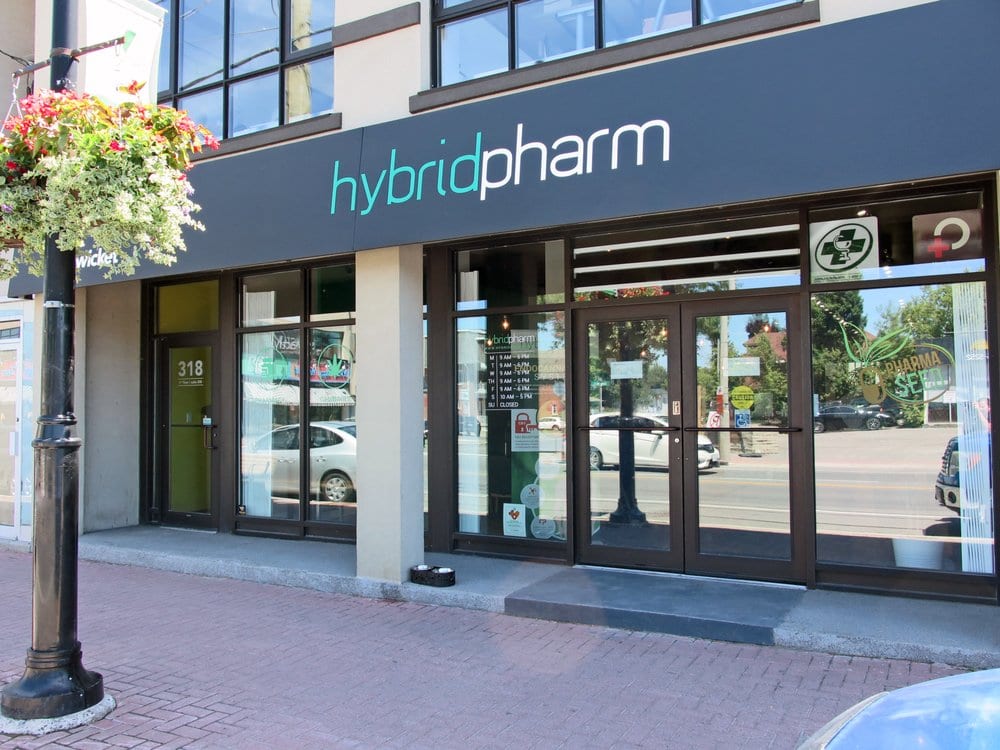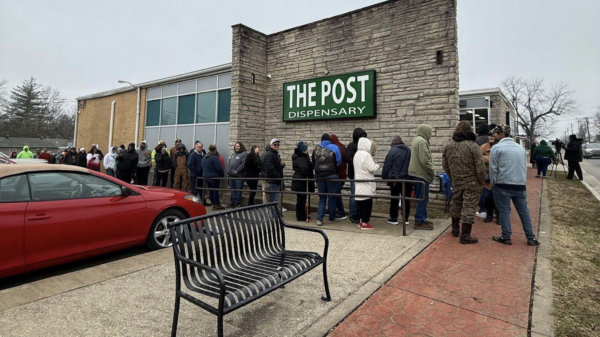Every day the legal weed experience gets better for Canadians.
Stores pop up in previously dry neighbourhoods, a wider selection of quality products becomes available and competition drives prices to new lows.
Except if you’re a patient.
If you’re a Canadian who’s been prescribed medical cannabis, you aren’t afforded the same level of care as patients taking other medications. You can’t fill it with your other prescriptions, you’re restricted to an online sales model, coverage from insurers is spotty, often the prices are similar or lower at recreational retail and you’ll be hit with sales taxes.
This puts patients at risk, experts say. Patient safety is compromised when vendors of medical cannabis can’t pull up medical records like pharmacists can. Not every medication interacts well with weed, and certain individuals should avoid use altogether.
A look at Canada’s first brick-and-mortar pharmacy to provide immediate access to medical cannabis alongside other regulated medicines presents a strong argument for widespread adoption of the model.
Authorizing the pharmaceutical supply chain — a move supported by health professionals and major sellers like Shoppers Drug Mart — could eliminate these vulnerabilities, as well as increase adoption to regulated sources. The number of patients registered with licensed producers has fallen by more than 40,000 since last September.
And an analysis of the country’s medical weed systems wouldn’t be incomplete without including the thousands who choose the treatment offered by legacy compassion societies like the Victoria Cannabis Buyers’ Club. The VCBC and similar storefronts offer quantities, product types and services unavailable on the regulated market. Its local Victoria government, and more recently the provincial government of British Columbia say they support exemptions for the VCBC from Canada’s strict cannabis laws.
A full picture also includes the most disadvantaged and at-risk citizens. Amid a worsening overdose crisis, research shows people in vulnerable populations use weed as a harm reduction tool, but only access legal sources at a rate of less than 1 per cent.
Given provincial policy shifts, exemptions granted by Health Canada revealed in recent court documents and with a legislated three-year review of the Cannabis Act on the horizon, it’s likely that revisions are on the way. But for many, those changes can’t come soon enough, or are too late already.
Patient safety should be a priority
When Revelstoke, B.C., resident Stephanie deJager goes to fill her prescriptions at the local pharmacy, she has to wait a few minutes for the pharmacists to prepare her order.
When she orders her prescribed cannabis through a regulated online source — the only legal medical option available to her — it takes days.

While the legal market is improving, deJager says, it’s still not a reliable source of medicine. Submitted photo
“It isn’t like you send it out by express post and I’m receiving it the next day. It’s not happening in Revelstoke,” deJager says. “It can be three-to-four days.”
As a person living with several chronic health conditions, consumer satisfaction isn’t just a nice-to-have. If she can’t access medicine easily, the medicine isn’t of a high enough quality, she can’t access enough at once, or the cost doesn’t make sense, then deJager has to look elsewhere.
Sometimes that means going to the recreational store, sometimes that means buying from unregulated sources and sometimes that means growing her own.
When Mugglehead told B.C.’s provincial government that many patients and experts believe the regulated medical cannabis system falls short in several ways, the province said decreasing prices in the legal market and a wide range of products on offer are sufficient to meet consumer needs.
But it’s hard to imagine the province saying the same if access to medication in general was subject to sales tax, restricted by insurance programs and limited to online transactions that exclude patients’ medical records.
“They gotta stop taxing the medical patients,” deJager says. The quality and price-point being offered by producers like Pure Sunfarms is good, she acknowledges. However, those purchases can be hard to justify when you slap taxes on top.
Canadians can claim medical cannabis on their tax returns, but for people above the $33,000 income bracket like deJager, any money back is slim to none. And for people in the low-income bracket, if they don’t have coverage, it’s hard to pay out of pocket then wait a year to get those funds back.
“That’s not covered through my insurance. So I’ve gotta pay the full shot, and there’s a lot of people on disability incomes making $1,000 a month and I just cringe thinking, ‘How do you pay for your medications?,’” deJager says. “And then we have to wait a year before we can claim that on our income tax? People can’t afford that.”
Read more: Manulife’s Shoppers-only medical cannabis coverage violates patient ethics: doctor
Health Canada says patients have reasonable access to cannabis, with several licensed producers offering compassionate pricing programs. While these programs exist, it’s common for provincial recreational retailers to offer similar or lower prices due to their increased bargaining power.
Federal and provincial authorities also agree that mandated quality assurance and testing make the legal market a safer choice.
But a lack of patient safety is a principal flaw of the country’s system today, according to Deepak Anand, vice-chair of patient advocacy group Medical Cannabis Canada and CEO of international medical cannabis firm Materia Ventures.
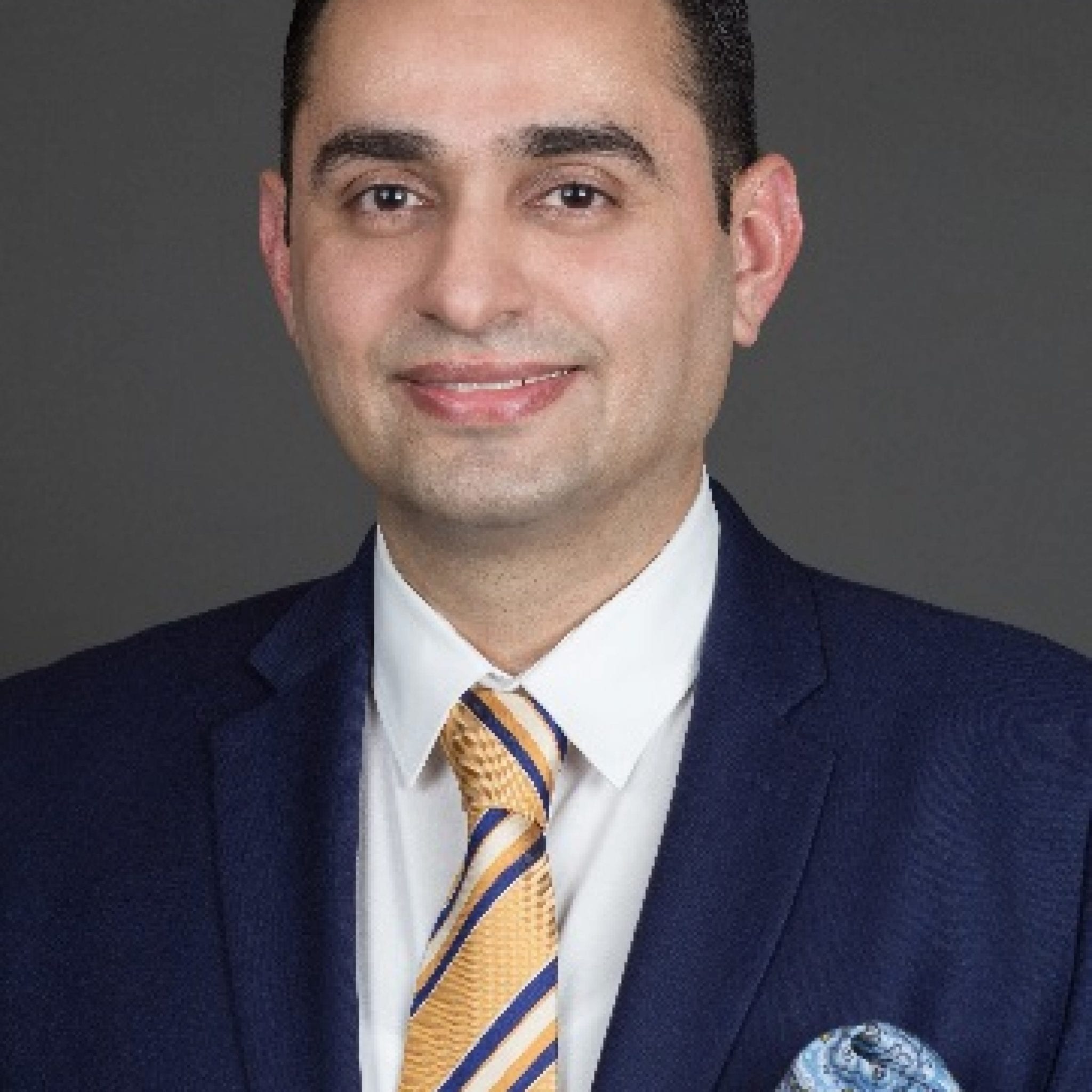
Anand advocates for medical access to cannabis in Canada and abroad. He’s a sharp critic of people who continue to stigmatize its use. Photo via Medical Cannabis Canada
“The reason for the patient safety issue is currently you’ve got physicians and nurse practitioners in the province in many cases that are not aware patients are using cannabis for medical purposes even though they might have a prescription from a doctor,” he says. “Because the pharmacy systems don’t talk to each other, between licensed producers and pharmacies, you could very well have medical interactions and drug-to-drug interactions in certain cases where it’s going completely unmonitored.”
From a patient’s perspective, deJager thinks being able to pick up cannabis along with her other medications is a good idea.
“A pharmacist, that’s what they’re there for: to let you know if something is going to interact,” she says. “I found out through one of our local budtenders that the medication I’m on — if I take that in correspondence with CBD, it actually reduces the effectiveness of the medication, of certain rheumatoid arthritis medications, and I didn’t know that.”
Shoppers Drug Mart, owned by Loblaws Companies, has the largest pharmaceutical chain in Canada. They also have arguably the country’s most advanced medical pot program, Medical Cannabis by Shoppers.
The national program sells an array of products from various licensed producers, has a call centre staffed by trained Shoppers’ pharmacists, has a weekend telemedicine platform and has been very successful in terms of patient pick-up, says VP of cannabis and business development Ken Weisbrod.
However, because the medical cannabis and pharmacy systems don’t talk to each other, Shoppers practitioners have to rely on patients to bring up potential health or medication conflicts.
“The issue is that in Canada we’ve built platforms where there’s connectivity between healthcare practices in terms of medical, pharmacy, blood, labs — provinces do it on a different basis, but the overall strategy is to try to integrate the knowledge base of your medical practitioner to help with those kinds of questions in cannabis. Unfortunately, because it’s not dispensing pharmacy, it doesn’t have a feed into the e-health platforms,” he explains.
“So when we talk to a patient or one of the practitioners talks to a patient, it’s in isolation of their other meds; that requires the patient to bring that information to us,” Weisbrod continues. “The great thing about being in pharmacy, and what we call ethical medicines, is we have that portal for e-health. In some provinces they’ve built them where I get to see all the meds that they can potentially partake in.”
But again, he adds, cannabis is outside those systems, which is a reason why Shoppers strongly advocates for the government to allow pharmacies to start dispensing it.
Authorizing the pharmaceutical supply chain to include cannabis requires changes at the federal and provincial level.
Pharmacists play an important role in helping patients make informed choices about their care, a spokesperson from the College of Pharmacists of British Columbia told Mugglehead in an email.
“This means that pharmacists can have a role in counselling patients related to cannabis use, including drug interactions [and] management of side effects,” the CPBC says. “We encourage pharmacists and patients to have open conversations about cannabis use to identify any possible interactions with medications they may be taking.”
Changes to federal legislation are required before the CPBC could begin to address cannabis in pharmacies, the spokesperson notes.
“The college, under direction of the board, will address any regulatory changes impacting cannabis in pharmacies, as we would address any regulatory change that impacts pharmacies and pharmacy professionals.”
Which means if you’re a patient taking medical cannabis, the waiting game for a storefront experience is a long one.
A pharmaceutical future
Meanwhile, in U.S. states with legal medical cannabis programs — including Florida, Pennsylvania and California — widespread, untaxed patient buy-in is driving profits through the dispensary roof. According to Statista, California’s projected medical revenues for 2020 are US$2.5 billion, making it larger than Canada’s entire recreational market.
Although it’s unlikely the strict regulatory approach taken by Canada will allow for such rampant capitalization of a medical product, Ottawa residents get the rare opportunity to experience what a pharmacy integrated with cannabis is like.

Ottawa’s Hybrid Pharm offers cannabis patients a more inclusive atmosphere than the online-only experience available to most Canadians. Photo via Hybrid Pharm
Hybrid Pharm is the premier location to offer the country’s medical cannabis program in-person. There, people consult directly with pharmacists and pick up cannabis products along with other prescribed medicine. The catch: an extensive federal licensing process that isn’t scalable.
To founder and CEO Rahim Dhalla, one-on-one consultation for cannabis is even more important than for other meds.
“I think we all know that cannabis is such an individualized application. It’s such a high touch point. And when you start releasing it into the wild as a legal framework, people are going to have questions and the entire medical system right now is so hands off. Computer, log on, get your stuff delivered. That’s it. And it seems like they want to keep it in the shadows and not not allow people to explore this as a medication, as a medicine,” he says.
What started as a dream to open a pharmacy with his late father Aziz — a pharmaceutical entrepreneur and beloved community leader in Ottawa — led to Hybrid Pharm opening in 2018. Dhalla had discussed his concept of a pharmacy specializing in cannabis with his father, who told Dhalla he needed to pursue it as there would be a gap in the industry.
“Now you have recreational taking the forefront with stores opening across the country. And the patients are kind of like, ‘Well, what about our stores? Where does that exist?’” Dhalla says.

Dhalla also applied for a microprocessor licence so he could compound cannabis medications — an submission that didn’t succeed. Compounding would allow more targeted applications, he says, including treatments for conditions like vulvodynia, which refers to chronic pain or discomfort of the vulva. Submitted photo
The application for Hybrid Pharm’s LP licence for medical sales was submitted in March 2019. After multiple reviews and revisions, approval came almost a-year-to-the-day later.
“Most of the patients that are using medical cannabis right now are over the age of 50, on multiple medications, failing conventional therapy, and you kind of ask yourself, ‘Why does the government not allow pharmacy distribution?’”
Before the federal Liberal Party announced its plan to legalize cannabis in 2016, belief in cannabis as a legitimate medicine among pharmacists was low. In initial consultations with pharmacists in 2014 and 2015 during Canada’s first regime of licensed medical producers, practitioners said they didn’t want to deal with it, Dhalla says.
However, when a legalization task force was assembled by Prime Minister Justin Trudeau in 2016, the Canadian Pharmacists Association commissioned KPMG to produce a report on medical cannabis, with the purpose of recommending sound policy for the new government. CPHA then submitted the results of the report to the task force, strongly arguing for medical cannabis to be dispensed by pharmacies.
“Pharmacist management and dispensing of medical cannabis is the best option to strengthen any future framework and protect patient and public safety,” the submission reads.
Despite these recommendations, the federal government has prohibited storefront medical cannabis services and sales, so concerns about patient safety and restricted access prevail today — nearly two years after the legalization of recreational use.
If patients want access to the in-person experience, Health Canada suggests going to a recreational store.
“Individuals who use cannabis for medical purposes can also purchase the same cannabis products, without an authorization, from provincial and territorial cannabis retailers,” it says.
A 20-year fight with an end in sight
But not every person battling an illness wants to navigate past floating cans of weed soda — which exist now, by the way — to consult with a budtender who looks like they’re about to run a double shift at a trendy barber shop down the street.
Most patients want to be treated with care, with compassion.
While provincial and federal authorities say competitive pricing combined with available licit sources amount to “reasonable access” to cannabis for medical purposes — a right enshrined in law — legal precedent suggests this might not be true.
“I find Ms. Shaw’s evidence to be extremely important as dispensaries are at the heart of cannabis access,” a Federal Court judge wrote in his reasons for judging the Marihuana for Medical Purposes Regulations — a set of rules that limited medical weed production to licensed producers — unconstitutional.
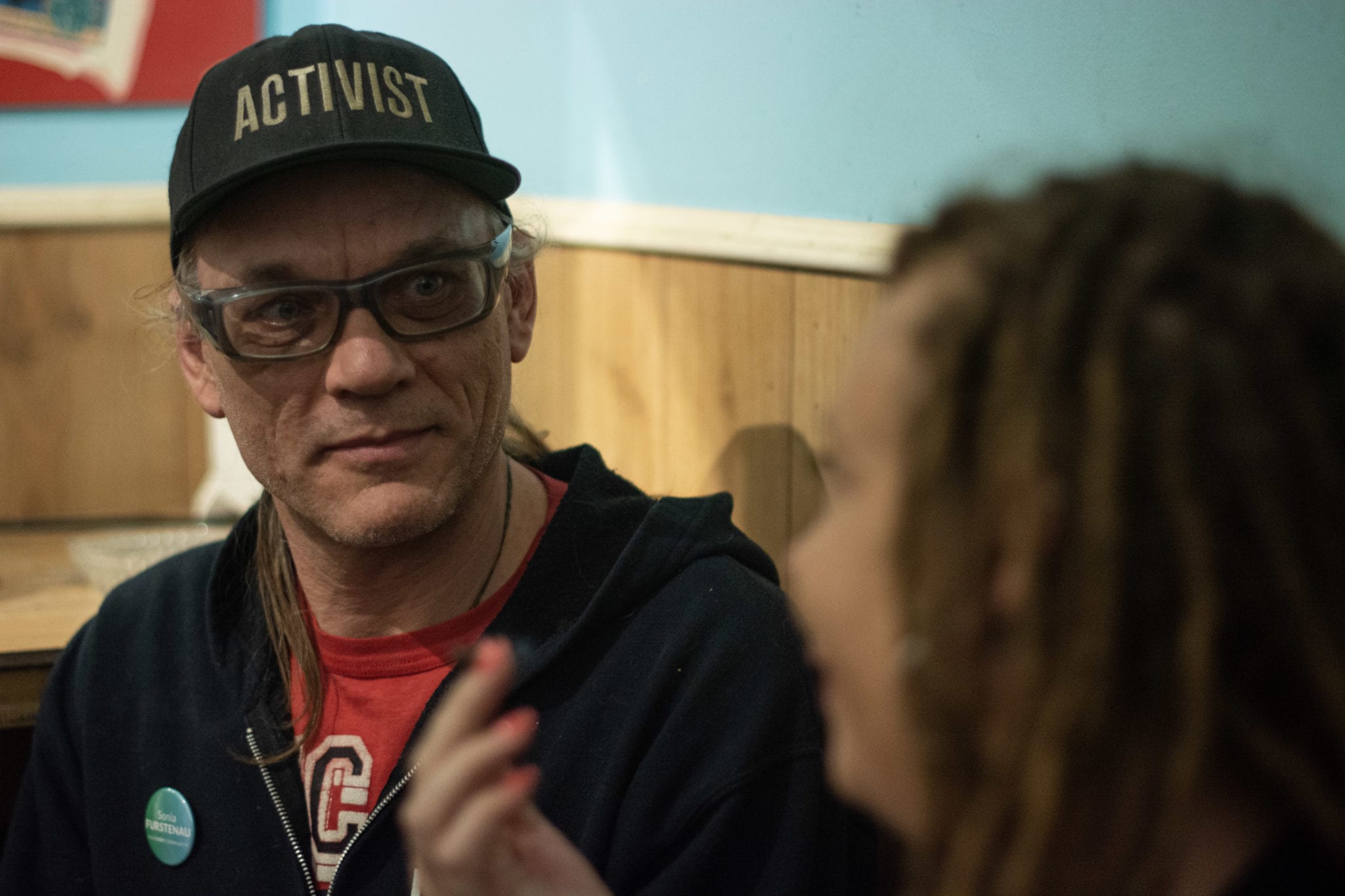
Jamie Shaw and Victoria Cannabis Buyers’ Club founder TED Smith share a joint at the club in February. Photo by Nick Laba
Jamie Shaw, who presented evidence at the historic Allard et al v. Her Majesty the Queen in Right of Canada case, was then president of the Canadian Association of Medical Cannabis Dispensaries and the communications coordinator for the BC Compassion Club Society. She’s since consulted with the provincial government in B.C. on evolving its policies, and today holds multiple advocacy and business roles including communications director at Shelter Market.
Shelter offers compassionate pricing for low-income clients, people on government assistance or disability, first responders and veterans.
Cost is just one factor, she notes, as not having a credit card or a fixed address can be barriers to access as well.
“We know the work medical dispensaries did to get us here is still important, is still relevant, and hope that the upcoming parliamentary review on legalization recognizes that as well,” she says.
The vast majority of dispensaries of varying legitimacy from the booming pre-2018 grey market era have shut down following raids and fines from law enforcement. Canada’s longest running compassion society, the Victoria Cannabis Buyers’ Club, is not one of them.
In spite of being raided twice over the past year by B.C.’s illicit weed task force, the Community Safety Unit, the VCBC looks more poised than ever to take official claim of its right to exist.
The Club offers its clients quality cannabis at low-cost, extract products of type and quantity not available from regulated sources, an on-site longue for patients to comfortably take their medicine, informal counselling via relationships built with clients over time and a depth of experience that comes with running a compassion society for over 20 years.

“The Box” consumption lounge at the VCBC — temporarily closed due to Covid — is one of the unregulated services the Club sees as essential. Many of the Club’s members view its extract products, which come at concentrations and prices not available on the legal market, as essential to their well-being as well. Photo by Nick Laba
After October 2018, as other sources became unavailable to residents of the southern tip of Vancouver Island, more and more patients signed up for the club, which now serves more than 7,000 members.
Following a raid led by the CSU in November of last year, members were concerned about the future of the Club. But after several demonstrations and a presentation to local government, Victoria city council voted unanimously to support an exemption for the VCBC from the Cannabis Act, prompting Mayor Lisa Helps to write a letter to the province, which has authority over cannabis retail.
Read more: Victoria becomes first Canadian city to back exemption for unlicensed dispensary
Although the letter was sent, the Club was raided by the CSU again this July. Without a response to the letter, nor any fines, VCBC founder Ted Smith was surprised but not discouraged.
“You know, the city hadn’t even received a response yet. So I anticipated that would have happened by now. And it hasn’t come. [Trees Cannabis] got a fine within five months of their raid, and we’re eight months after ours,” Smith said in a phone interview after the raid. “There seems to have been some extraordinary delay there, and with Covid and everything going on it just didn’t seem like that was gonna be a priority.”
However, with a new legal team assembled, cash in hand following a partial legal settlement with a former employee, planned research partnership with CREAN Society and evidence of federal exemptions revealed in a recent court ruling, Smith felt a new surge of confidence with a number of things working in the Club’s favour. That confidence was reflected in his members too, who Smith said weren’t worried after the second raid.
“It’s the government that needs to be reminded of this again and again. They constantly feel comfortable violating our rights in almost any way possible, and making minimal changes when the courts tell them that the laws are unconstitutional,” he said. “It’s been very frustrating to deal with this year after year. But we have made incremental and big changes by fighting like this. And every time we get raided, it’s another opportunity to state our case and fight.”
The second raid looks even stranger now, as Mayor Helps received a response letter from the province at the end of August indicating support for the VCBC. Penned by Public Safety Minister Mike Farnworth, he begins by apologizing for the late reply, blaming an administrative error that led to the letter being misfiled.
Read more: NDP doles out pre-election positivity to its BC buds
After some stock paragraphs about the safety of regulated cannabis, he writes: “I have raised this issue with my federal ministerial counterpart and encouraged exploration of a licence that could allow VCBC to continue providing certain services. The province has also urged the VCBC to contact Health Canada about licensing and informed them they may want to share their views about enabling medical users to access cannabis through a storefront. The city may also wish to share its support for the VCBC model with Health Canada.”
Smith reacted to the letter with surprise and gratitude, stating the Club has been preparing an application for an exemption to be submitted to Health Canada this month.
When Mugglehead asked the federal regulator about the possibility of an exemption for the VCBC, it said in rare and exceptional circumstances it may issue an exemption under section 140 of the Cannabis Act. These decisions are made on a case-by-case basis and are granted only to individuals, groups or organizations when Health Canada believes the exemption is necessary for a medical or scientific purpose, or is otherwise in the public interest.
“Such exemptions provide a mechanism to authorize otherwise prohibited activities to address, for example, unexpected situations or areas where the Cannabis Act and its regulations have had unintended consequences,” it wrote.
During an overdose crisis, support harm reduction projects as pilot interventions
Spending more time than ever indoors, and consuming record amounts of weed, citizens — especially those in B.C. — might forget there’s a deadlier public health crisis than Covid-19 sweeping the province.
Overdose deaths from illicit opioids are taking record numbers of lives.
Amid the ongoing opioid epidemic, there have been increasing calls from researchers and advocates to look at weed as a harm reduction tool. Data from researchers at the University of British Columbia show that cannabis can be used as a substitute for more harmful street drugs, and is associated with better health outcomes overall.
Read more: ‘It actually works’: Vancouver study shares stories of youth choosing weed over harder drugs
Although cannabis could have the potential to save lives, the most vulnerable people in society are the least likely to access it from regulated sources. Without waiting for the snail’s pace of mainstream consensus to catch up to making efforts in the present, unregulated organizations like The Cannabis Substitution Project have set up to fill in the gap. Distributing low-barrier weed to reduce the rampant harms of toxic street drugs has garnered support from city officials and academics.
Experts like Canopy Growth professor of cannabis science M-J Milloy are urging regulators and policy makers to support the work of non-profit harm reduction projects as pilot interventions during the overdose crisis. Research by his team and others shows that legal cannabis is out of reach for almost all people who use drugs at high risk of overdose. High cost, minimum purchase sizes, the need for a credit card or an authorization have all been identified as important barriers for accessing cannabis for harm reduction.
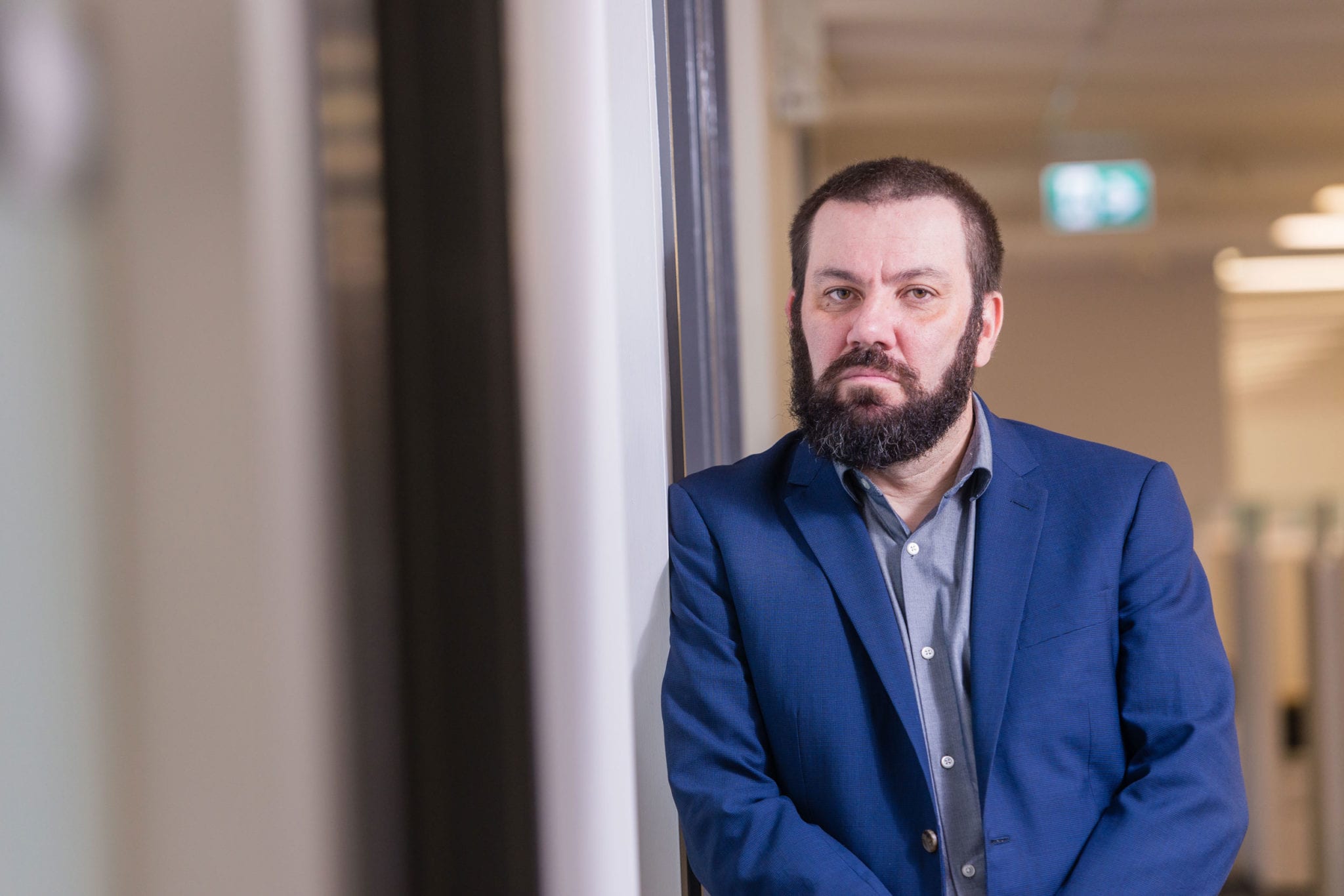
Preliminary research from Milloy’s team at UBC and the BC Centre on Substance Use show cannabis can be a harm reduction tool during the worsening overdose crisis. Submitted photo
“Over the medium to long-term, I hope the policymakers in charge of legal cannabis reform these systems to ensure that people using it for therapeutic purposes have meaningful and equitable access, especially if conclusive research validates our preliminary findings that cannabis use reduces the risk of overdose,” Milloy says.
“In the short term, I would urge our federal, provincial and municipal representatives who run the legal cannabis systems to pause enforcement actions against the non-profit community-run organizations that are providing free or low-cost cannabis to people at highest risk of overdose in Vancouver and Victoria, including the High Hopes Foundation, SOLID Victoria, and the Cannabis Substitution Project.”
Read more: Vancouver cannabis harm reduction project finds a home
In his view, these programs help people at the highest risk of overdose meet their needs — for pleasure, for relief from pain and trauma, for help managing their dependence on other substances — without having to risk their lives with the toxic illicit drug supply.
Last Wednesday, B.C. Provincial Health Officer Dr. Bonnie Henry issued an order that will allow health practitioners to prescribe alternatives to toxic street drugs as well as authorize health authorities and community pharmacies to dispense them. While the office confirmed with Mugglehead that the list of approved alternatives will include pharmaceutical opioids, it couldn’t yet say whether cannabis will be on the list. The guidance is still being developed, a spokesperson said, which will be reviewed for a targeted completion as early as late October.
Imagining an inclusive system for cannabis patients
The country’s new weed laws have afforded Canadians more explicit liberties to access and choose how to use the plant and its byproducts as they see fit. It’s opened the doors to research, and paved the path for other promising psychoactive substances to come out of the shadows.
However, many argue that access to cannabis for medical purposes has effectively decreased under legalization. Its lack of adoption by mainstream medical channels results in many patients having to chart a course to better health on their own.
Canada is a democracy and democracies should listen to experts and public opinion when choosing sound policy.
When it comes to medical cannabis, Canadians are clearly asking for more.
Top image via Hybrid Pharm
Correction: An earlier version of this story called Hybrid Pharm the first brick-and-mortar pharmacy to dispense medical cannabis. Dhalla told Mugglehead that the wording of “dispense” is not allowed because Health Canada does not refer to the capabilities of his store related to medical cannabis as such. The phrase has been changed to “provide immediate access.” (2020-9-24 9:30am PST)
nick@mugglehead.com
@nick_laba

